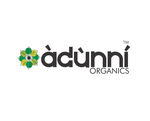 Black Soap is made from the saponification of Shea butter, Palm Oil, Palm Kernel Oil and Potash, which is a herbal mixture of Plantain, Cocoa Pods, Palm Tree Leaves, and any number of herbs such as Neem, Camwood, and the barks of other such trees which are roasted in a clay oven, until it becomes ash. As a result of the process of harvesting and mixing the Potash, it is difficult to know exactly what makes up 100% of any batch of Black Soap. The soap is cooked to perfection on an open fire which is tended for about 6 to 12 hours after which the soap is left to “cure”.
Black Soap is made from the saponification of Shea butter, Palm Oil, Palm Kernel Oil and Potash, which is a herbal mixture of Plantain, Cocoa Pods, Palm Tree Leaves, and any number of herbs such as Neem, Camwood, and the barks of other such trees which are roasted in a clay oven, until it becomes ash. As a result of the process of harvesting and mixing the Potash, it is difficult to know exactly what makes up 100% of any batch of Black Soap. The soap is cooked to perfection on an open fire which is tended for about 6 to 12 hours after which the soap is left to “cure”.
African Black Soap is a very versatile Soap that can be used as a Shampoo, Face Soap, and Baby Bath Soap. Adunni Organics African Black Soap is known to have a cooling effect which offers the skin a soothing relief from the heat of the dry season.
You might wonder what skin types would benefit from the use of African Black Soap, and I would say all of them. This is because what African Black Soap does over time is to balance the pH of your skin bringing it to its best. A number of people find some types of African Black Soap drying, and my advice to them is this; if you have dry skin and find African Black Soap too drying, use it less often, maybe about once a week and moisturize heavily with a good body butter afterwards. If you find that African Black Soap makes you break out, this is because your skin is being detoxified. Stick it out for a few days, and just let your skin breathe. It should balance out shortly. Of course, if you have any worrying skin issues, the best thing is to consult a Dermatologist before taking any action.
 How to use African Black Soap? Just like any other soap. Rub some on a sponge, washcloth or loofah, and scrub gently. It is not advisable to use it directly on your skin as the sediments from the Potash which give it its exfoliating qualities could scratch the delicate skin of the face.
How to use African Black Soap? Just like any other soap. Rub some on a sponge, washcloth or loofah, and scrub gently. It is not advisable to use it directly on your skin as the sediments from the Potash which give it its exfoliating qualities could scratch the delicate skin of the face.

Ose Dudu aka African Black Soap is sold in different colours, the most common being a dark brown, it is sometimes blackish brown, black and even white. This is purely due to the way it is produced. If it is made with Aluminium pots, the reaction results in an ashy soap, the length of time for which the Plantains which make up the Potash is roasted also determines how black it turns out. The finished soap is sometimes dried in the sun which bleaches it and gives it a white colour. This doesn’t affect its efficacy to the best of my knowledge.
Ose Dudu aka African Black Soap also comes in various forms, solid, semi-solid and liquid form, depending on its water content, and if lye was used to make it. Adunni Organics African Black Soap is made with locally sourced and produced Potash, using traditional methods, and comes out in gel form, giving a very mild yet effective soap. This is simply a matter of choice, other forms are fine to use as long as they are properly made with a balanced ratio of ingredients. Please ask any questions you may have about Ose Dudu aka African Black Soap, and we will be glad to answer them!
also comes in various forms, solid, semi-solid and liquid form, depending on its water content, and if lye was used to make it. Adunni Organics African Black Soap is made with locally sourced and produced Potash, using traditional methods, and comes out in gel form, giving a very mild yet effective soap. This is simply a matter of choice, other forms are fine to use as long as they are properly made with a balanced ratio of ingredients. Please ask any questions you may have about Ose Dudu aka African Black Soap, and we will be glad to answer them!


 Rich in Vitamin E which is a skin healer and Vitamin A, a good source of Collagen, Black Soap is a mild Soap which cleans and exfoliates gently without stripping the skin of its natural oils.
Rich in Vitamin E which is a skin healer and Vitamin A, a good source of Collagen, Black Soap is a mild Soap which cleans and exfoliates gently without stripping the skin of its natural oils.
1 comment
Do you sell any African Black Soap that is NOT made in an aluminum pot?